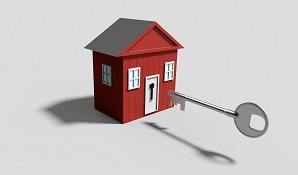We all want to keep our homes nice and warm in winter, without spending a fortune. To find out the best way to save on heating, we did some research into the pros, cons and costs of electricity, gas and wood.
Find out which is the most cost effective and efficient way to heat your home this winter.
Electricity Startup costs
You can buy a cheap fan heater, which is very efficient for warming a room quickly, for under R200. A 9-fin oil heater costs around R800. The better quality the heater, the more you will pay.
Cost of electricity
The heat energy of a heating device is measured in kilowatts (kW). The current cost of electricity in Johannesburg is R1.24 per kW. A 9-fin oil heater or an elctric fan uses around 2kW in an hour, so at R1.24 per kW, it will cost you R2.48 per hour.
Remember, though, that during peak times (between 07:00 and 10:00 and 17:00 and 21:00 on weekdays) in certain municipalities in winter, electricity can be billed at 2.5 times the standard rate. This Time of Use Tariff means that you’ll be paying R6.20 to use a heater during these times.
Heat generated
In South Africa, our heaters are limited by the type of power they can draw from our plug points, so the maximum heat they can generate is 3kW. However, as most of our heaters are imported, the maximum they can generate is 2kW, in line with European limitations.
Pros
Electric heaters are available in a range of sizes, functionality, cost and heat efficiency. In addition, the costs of heating a room with electricity are not overly high. And it’s convenient - as long as the power’s on, it is always available at the flip of a switch.
Cons
Electric heaters are dependent on the Eskom power supply, which means that if there is no power, you will have no heat. Certain types of heater – oil heaters, for instance – take a long time to warm up. Other types – like bar heaters – give a more immediate radiant heat, but there is a risk of burning yourself or even starting a fire. Electric heaters do tend to dry out the air but a humidifier or bowl of water nearby will solve that.
GasStartup costs
A portable gas heater starts in the region of R800 to R1 000. A 9kg gas bottle requires a deposit of R300 and the gas itself costs R200 for each refill.
Cost of gas
It is calculated that a 9kg gas canister, which costs around R200, will be used up in around 30 hours – so that’s R6.67 an hour.
Heat generated
Mobile gas heaters can give out over 4kW of heat. You can manually adjust their temperature to give out less heat, and thus use less gas.
Pros
Gas heaters deliver instant heat and are therefore very efficient at warming a room – or your cold hands!
Cons
The costs of gas and gas heaters are comparatively quite high. Also, gas heaters consume oxygen and so the room must be well ventilated. And you will have to arrange for gas to be delivered to your home, or take your gas bottles to be refilled.
Wood-burning stoveStart-up cost
David Wantling, a heating expert and the managing member of J Macdonald and Sons (trading as macD Fire House), says that a wood-burning stove or a closed combustion fireplace costs between R10 000 and R25 000, with installation of around R5 000.
Note that the following calculations do not include open fireplaces, which are very inefficient; only around 15% to 20% of the heat radiates into the room while the rest goes up the chimney.
Cost of wood
The cost of fuel for a wood-burning stove is far less than the cost of using electricity or gas. A bag of hard, well-seasoned wood containing around 25 pieces costs around R45. David estimates that a fire loaded with six pieces will burn for more than six hours at a moderate level. This means that the stove will consume about one piece of wood per hour at a cost of R1.80 per hour for an output of 6 to 8kW of heat. The cost is therefore around 30c per kW.
Heat generated
Closed wood-burning stove have an efficiency of up to 80%. Wood stoves’ heat outputs are generally rated as: small – 3kW to 6kW, medium – 5kW to 9kW, and large – 8kW to 12kW, and very large - above 12kW. The size of the space would determine the size fireplace you need.
Pros
Wood-burning stoves give off a lot of warmth very efficiently, and wood is an inexpensive fuel to burn in this way.
Cons
The start-up costs of buying and installing a wood-burning stove are fairly steep. And you will have to make arrangements to purchase wood.
The conclusionWood-burning stoves, while the most expensive to purchase, burn wood at a slow rate while generating a lot of heat, and are the most-cost effective way to heat a room.
Electric heaters are the cheapest to purchase, and their running costs are the second cheapest after wood stoves.
Mobile gas heaters are generally more expensive than their electric counterparts and their fuel is more costly than electricity and wood.
Of course, most people make the decision to heat their homes based on the equipment that they already have available and the convenience of getting hold of the right type of fuel. However, with the rising costs of all types of fuel, it is worth considering the financial implications of any heating solution that you opt for, so be sure that you go into any purchase or installation with your eyes open – especially with the wide range of products and models on the market.




